The Impact of Hospitals
Editat de John Henderson, Peregrine Horden, Alessandro Pastoreen Limba Engleză Paperback – 26 noi 2007
Preț: 680.07 lei
Preț vechi: 883.21 lei
-23% Nou
Puncte Express: 1020
Preț estimativ în valută:
130.15€ • 141.32$ • 109.32£
130.15€ • 141.32$ • 109.32£
Carte tipărită la comandă
Livrare economică 23 aprilie-07 mai
Preluare comenzi: 021 569.72.76
Specificații
ISBN-13: 9783039110018
ISBN-10: 3039110012
Pagini: 426
Ilustrații: 27 ill.
Dimensiuni: 150 x 223 x 28 mm
Greutate: 0.66 kg
Ediția:Nouă
Editura: Peter Lang Gmbh, Internationaler Verlag Der W
ISBN-10: 3039110012
Pagini: 426
Ilustrații: 27 ill.
Dimensiuni: 150 x 223 x 28 mm
Greutate: 0.66 kg
Ediția:Nouă
Editura: Peter Lang Gmbh, Internationaler Verlag Der W
Notă biografică
The Editors: John Henderson is Professor of Renaissance History at Birkbeck University of London. His major publications include: Piety and Charity in Late Medieval Florence (1994, 1997), The Great Pox: The French Disease in Renaissance Europe (with Jon Arrizabalaga and Roger French) (1997), and The Renaissance Hospital: Healing the Body and Healing the Soul (2006).
Peregrine Horden is Professor of Medieval History at Royal Holloway University of London. He is co-author, with Nicholas Purcell, of The Corrupting Sea: A Study of Mediterranean History (2000), of which a sequel, Liquid Continents, is in preparation, and author of two forthcoming volumes: The Earliest Hospitals, and Hospitals and Healing from Antiquity to the Later Middle Ages. He edited Music as Medicine: The History of Music Therapy since Antiquity (2000).
Alessandro Pastore is Professor of Early Modern History at the University of Verona. Among his recent books are: Il medico in tribunale. La perizia medica nella procedura penale d'antico regime, secoli XVI-XVIII (1998), Alpinismo e storia d'Italia. Dall'Unità alla Resistenza (2003), and Le regole dei corpi. Medicina e disciplina nell'Italia moderna (2006).
Peregrine Horden is Professor of Medieval History at Royal Holloway University of London. He is co-author, with Nicholas Purcell, of The Corrupting Sea: A Study of Mediterranean History (2000), of which a sequel, Liquid Continents, is in preparation, and author of two forthcoming volumes: The Earliest Hospitals, and Hospitals and Healing from Antiquity to the Later Middle Ages. He edited Music as Medicine: The History of Music Therapy since Antiquity (2000).
Alessandro Pastore is Professor of Early Modern History at the University of Verona. Among his recent books are: Il medico in tribunale. La perizia medica nella procedura penale d'antico regime, secoli XVI-XVIII (1998), Alpinismo e storia d'Italia. Dall'Unità alla Resistenza (2003), and Le regole dei corpi. Medicina e disciplina nell'Italia moderna (2006).
Cuprins
Contents: John Henderson/Peregrine Horden/Alessandro Pastore: Introduction. The World of the Hospital: Comparisons and Continuities - Peregrine Horden: Alms and the Man: Hospital Founders in Byzantium - Kevin C. Robbins: Patrimony, Trust, and Trusteeship: The Practice and Control of Burgundian Philanthropy at Beaune's Hôtel-Dieu, c. 1630 - Matthew Thomas Sneider: The Treasury of the Poor: Hospital Finance in Sixteenth- and Seventeenth-Century Bologna - Marina Garbellotti: Assets of the Poor, Assets of the City: The Management of Hospital Resources in Verona between the Sixteenth and Eighteenth Centuries - Andrea Tanner: Too Many Mothers? Female Roles in a Metropolitan Victorian Children's Hospital - Carole Rawcliffe: 'A Word from Our Sponsor': Advertising the Patron in the Medieval Hospital - Christine Stevenson: Prints 'proper to shew to Gentlemen': Representing the British Hospital, c. 1700-50 - Annmarie Adams: 'That was Then, This is Now': Hospital Architecture in the Age(s) of Revolution, 1970-2001 - Max Satchell: Towards a Landscape History of the Rural Hospital in England, 1100-1300 - Sergio Onger: The Formation of the Hospital Network in the Brescian Region between the Eighteenth and Twentieth Centuries - Steve Cherry: 'Keeping your hand in' and Holding On: General Practitioners and Rural Hospitals in Nineteenth- and Twentieth-Century East Anglia - Louise Gray: Hospitals and the Lives of the Chronically Sick: Coping with Illness in the Narratives of the Rural Poor in Early Modern Germany - Eric Gruber von Arni: 'Tempora mutantur et nos mutamur in illis': The Experience of Sick and Wounded Soldiers during the English Civil Wars and Interregnum, 1642-60 - Flurin Condrau: The Institutional Career of Tuberculosis: Social Policy, Medical Institutions and Patients before World War II - Alysa Levene: Saving the Innocents: Nursing Foundlings in Florence and London in the Eighteenth Century - Diego Ramiro Fariñas: Mortality in Hospitals and Mortality in the City in Nineteenth- and Twentieth-Century Spain: The Effect on the Measurement of Urban Mortality Rates of the Mortality of Outsiders in Urban Health Institutions.
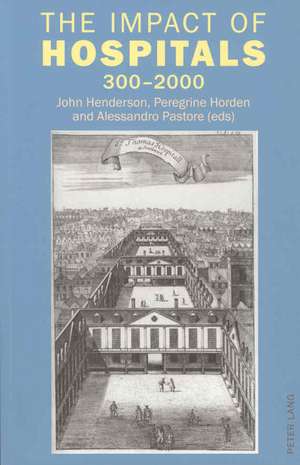
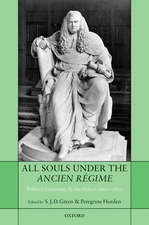
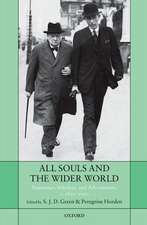

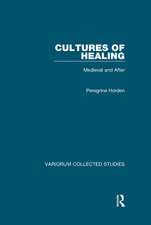


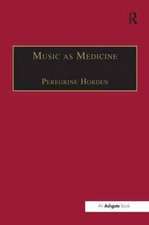



![Memoires Du Marechal de Grouchy. [Volume 1] (Ed.1873-1874)](https://i4.books-express.ro/bt/9782012587847/memoires-du-marechal-de-grouchy-volume-1-ed-1873-1874.jpg)
![Memoires Du Marechal de Grouchy. [Volume 2] (Ed.1873-1874)](https://i0.books-express.ro/bt/9782012587854/memoires-du-marechal-de-grouchy-volume-2-ed-1873-1874.jpg)
![Memoires Du Marechal de Grouchy. [Volume 3] (Ed.1873-1874)](https://i1.books-express.ro/bt/9782012587861/memoires-du-marechal-de-grouchy-volume-3-ed-1873-1874.jpg)
![Memoires Du Marechal de Grouchy. [Volume 4] (Ed.1873-1874)](https://i2.books-express.ro/bt/9782012587878/memoires-du-marechal-de-grouchy-volume-4-ed-1873-1874.jpg)






